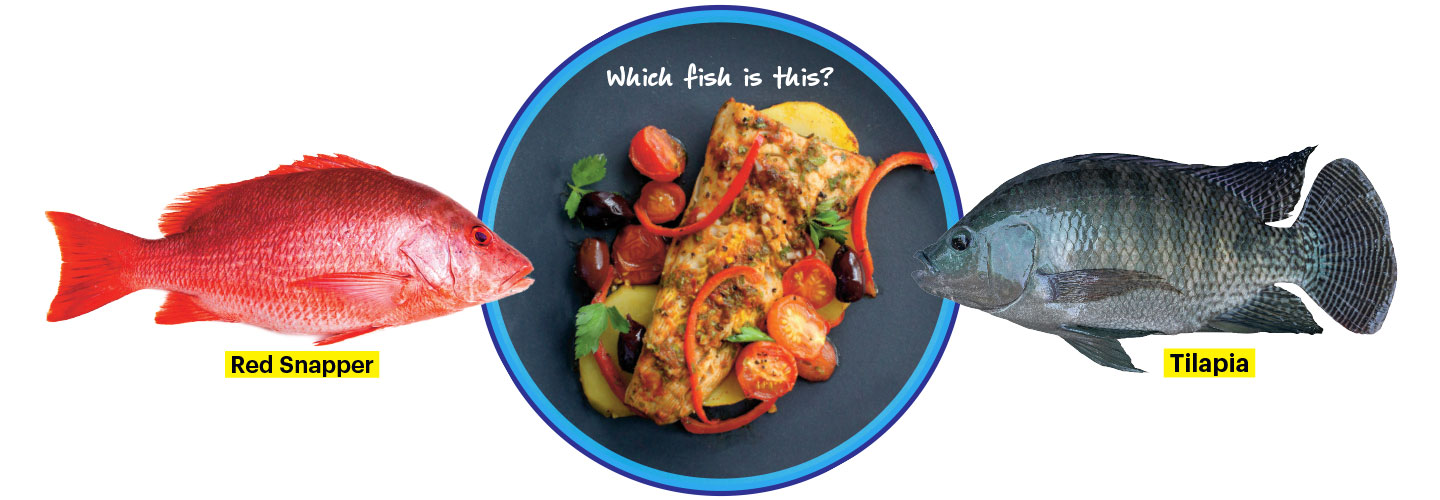Several years ago, marine scientist Kimberly Warner developed a curious habit. She would go to a restaurant, order seafood, and cut a tiny piece to slip into her purse—sauce and all.
To those watching, Warner’s actions might have seemed strange. But she was part of a covert mission investigating seafood fraud. Warner and a team of scientists from Oceana, an ocean conservation group, wanted to see how frequently seafood was mislabeled. They collected samples from more than 650 restaurants and grocery stores across 21 states.
What they found was shocking: One in every three seafood products was wrongly identified. Imported seafood was marked as domestic, farm-raised fish was labeled as wild-caught, and less expensive species were passed off as pricier ones.
“Seafood fraud is any dishonest information about seafood you purchase,” says Warner. “Our seafood supply chains are so long and complex that it allows a lot of bad activities to occur.” Mislabeling and species substitution are just two types of seafood fraud. Dishonest fishermen are also known to illegally catch protected species.
Consumers not only end up paying more for fraudulent fish, but may be exposed to toxins such as mercury. In addition, seafood fraud harms the environment because conservation measures like bycatch limits and others are often ignored in the process. Bycatch refers to seafood, other than the targeted species, that is accidentally caught during fishing.
Kimberly Warner developed an odd habit several years ago. The marine scientist would order seafood at a restaurant. As she was eating, she would sneak a tiny piece into her purse.
But Warner was actually on a secret mission. She was part of a team of scientists from an ocean conservation group called Oceana. They were investigating seafood fraud. They were investigating seafood fraud. Seafood fraud is when people sell you a fish that's different from what's on the menu or label. The scientists collected samples of fish from more than 650 restaurants and grocery stores in 21 states.
What they found was shocking. One in every three seafood products was incorrectly identified. Seafood imported from other countries was marked as from the U.S. Farm-raised fish was labeled as wild-caught. Less expensive fish species were passed off as pricier ones.
"Seafood fraud is any dishonest information about seafood you purchase," says Warner. "Our seafood supply chains are so long and complex that it allows a lot of bad activities to occur." Mislabeling and species substitution are just two types of seafood fraud. Dishonest fishermen are also known to illegally catch protected species.
Consumers end up paying more for fraudulent fish. They may also be exposed to toxins such as mercury. Seafood fraud can even harm the environment. Conservation measures like bycatch limits and others are often ignored. Bycatch refers to seafood, other than the targeted species, that is accidentally caught during fishing.

